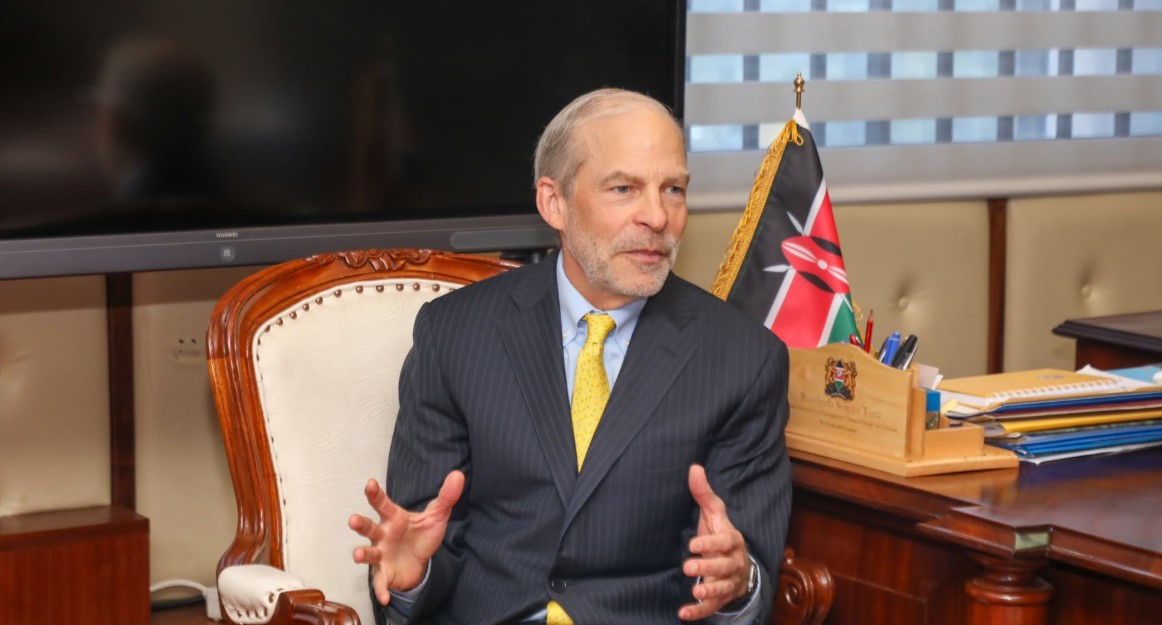SC Johnson opens Sh1.3 billion mosquito repellent production line in Nairobi

Spatial repellents release chemicals into the air to prevent mosquitoes from biting people, which helps in reducing the spread of malaria.
American consumer goods company SC Johnson has launched a new mosquito repellent production line in Nairobi, targeting growing demand from the potential endorsement of its products by the World Health Organisation (WHO).
This move comes as Africa, which bears the brunt of malaria, grapples with 94 per cent of global cases and 95 per cent of related deaths. Children under five are particularly vulnerable to malaria-causing mosquito bites.
More To Read
- Adult obesity treatment enters new era with WHO-endorsed GLP-1 drugs
- Somalia on high alert as Marburg virus outbreak hits neighbouring Ethiopia
- Flu shots: how scientists around the world cooperate to choose the strains to vaccinate against each year
- Study flags stark inequities in global epilepsy care, medication
- Study warns climate shifts could widen malaria risk across Africa
- WHO warns of measles resurgence as vaccine gaps widen
According to the WHO, Kenya recorded 3.29 million malaria cases in 2023.
"We are months away from receiving a policy recommendation from the World Health Organisation where we can get this new tool in the hands of millions of people. We just reached a key milestone and opened high-speed manufacturing of this new tool at our site in Kenya. We'll produce 20 million units a year, and this is only the beginning," SC Johnson Chairman and CEO Herbert Fisk Johnson III said on his LinkedIn page.
The company's $10 million (Sh1.3 billion) investment in the spatial repellent line, announced in April 2023, marks a significant step in combating the disease.
Spatial repellents release chemicals into the air to prevent mosquitoes from biting people, which helps in reducing the spread of malaria.
Repel or kill mosquitoes
These products can either repel or kill mosquitoes, offering a crucial tool in the fight against the disease.
Kenya has made notable progress in tackling malaria. Statistics from the Ministry of Health show that the country has reduced malaria rates by at least 50 per cent over the last decade.
Deaths from Malaria have dropped by an impressive 93 per cent, from 15,061 in 2015 to just 1,060 in 2023.
This success is attributed to various public health initiatives, including the distribution of insecticide-treated bed nets and the rollout of the RTS,S malaria vaccine, the first of its kind globally.
The country's malaria control efforts have been further supported by international partners, with $183.6 million in funding from organisations like the Global Fund, PMI/USAID, and the World Bank.
These funds have been instrumental in purchasing treated bed nets and antimalarial drugs and supporting health campaigns.
While progress has been made, challenges remain. In 2023, Kenya saw a slight drop in malaria cases, from 3.42 million in 2022 to 3.29 million, while national malaria prevalence fell from 8.2 per cent to 6 per cent.
Despite these gains, malaria cases still increased by 25 to 63 per cent compared to the baseline year of 2015, missing the target for a reduction by 2025.
Top Stories Today











































